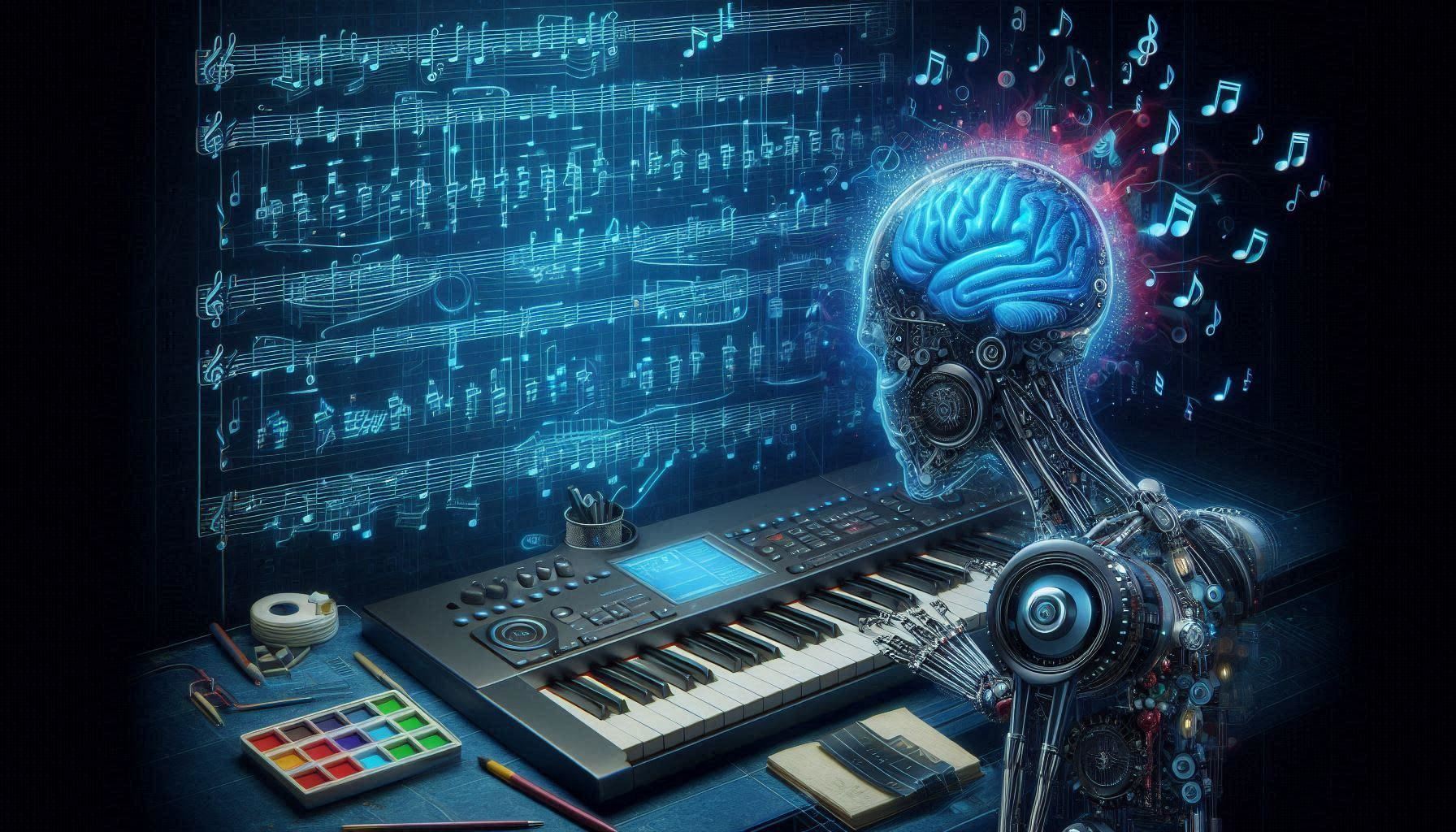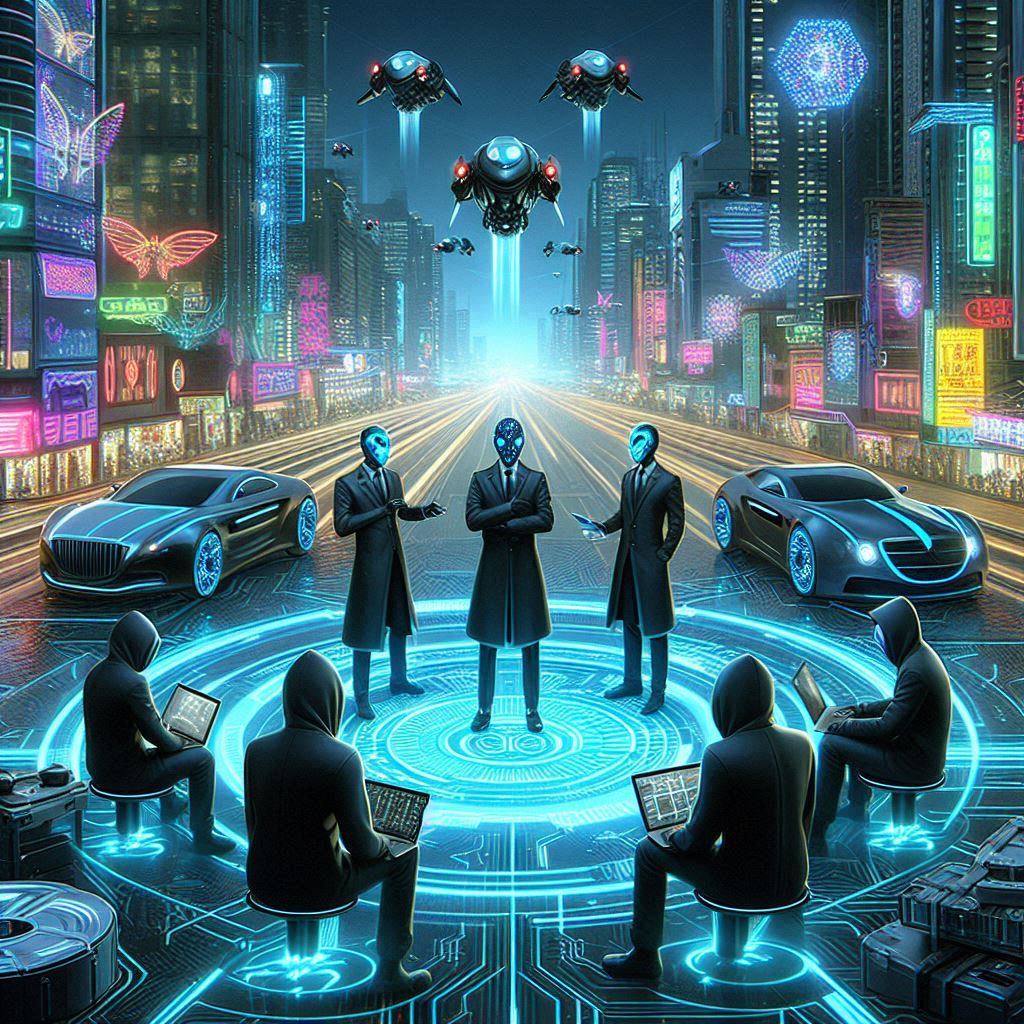
In recent years, artificial intelligence (AI) has made significant inroads into various sectors, from healthcare to finance, and now, it is revolutionizing the music industry. Generative AI in music is an exciting frontier, where machines are learning to compose, produce, and even perform music. This article explores how generative AI is transforming music composition, the technology behind it, its impact on the music industry, and what the future holds.
Index
- Introduction to Generative AI in Music
- Understanding the Technology
- How AI Composes Music
- The Role of AI in Music Production
- Case Studies of AI-Generated Music
- The Impact on Musicians and the Music Industry
- Ethical Considerations and Challenges
- The Future of AI in Music
- Conclusion
Introduction to Generative AI in Music
Generative AI refers to algorithms that can create content autonomously. In the context of music, these algorithms can compose melodies, harmonies, and rhythms, often mimicking human creativity. The use of AI in music is not entirely new; computer-generated music has been around for decades. However, recent advancements in AI and machine learning have significantly improved the quality and sophistication of AI-generated music.
Understanding the Technology
Generative AI in music relies heavily on machine learning, particularly deep learning techniques. One of the most common types of AI used in music composition is the recurrent neural network (RNN), specifically long short-term memory (LSTM) networks. These networks are adept at handling sequences of data, making them ideal for processing and generating music, which is inherently sequential.
Training the AI
Training an AI to compose music involves feeding it vast amounts of musical data. This data can include various genres, styles, and compositions. The AI analyzes this data to learn patterns and structures in music, such as chord progressions, melodies, and rhythms. Over time, the AI becomes proficient at generating its own music that adheres to these learned patterns.
How AI Composes Music
The process of AI music composition typically involves several steps. Initially, the AI generates a basic melody or chord progression. It then refines this initial composition by adding harmonies, rhythms, and other musical elements. The result is a complete piece of music that, in many cases, can be indistinguishable from human-composed music.
Melody Generation
Melody generation is often the starting point for AI music composition. The AI uses its learned knowledge of musical scales, intervals, and phrasing to create a sequence of notes. This melody serves as the foundation for the rest of the composition.
Harmonization and Arrangement
Once a melody is generated, the AI can add harmonies and arrange the music. This involves creating chord progressions that complement the melody and structuring the piece with verses, choruses, and bridges. The AI may also add rhythmic elements, such as drum patterns and basslines, to enhance the composition.
The Role of AI in Music Production
Beyond composition, AI is also transforming music production. AI-powered tools can assist with mixing, mastering, and even sound design. These tools use machine learning algorithms to analyze audio tracks and make adjustments that enhance the overall sound quality.
AI in Mixing and Mastering
Mixing and mastering are critical stages in music production, where individual tracks are balanced, and the final mix is polished. AI-driven tools can automate parts of this process, making it faster and more efficient. For example, AI can identify and adjust the levels of different instruments to ensure a balanced mix or apply equalization and compression to enhance the final master.
Sound Design and Synthesis
AI is also making strides in sound design and synthesis. AI-powered synthesizers can generate new and unique sounds by analyzing existing audio samples and creating variations. These tools offer musicians a new palette of sounds to work with, pushing the boundaries of what is possible in music production.
Case Studies of AI-Generated Music
Several notable examples of AI-generated music highlight the technology's potential and versatility. These case studies demonstrate how AI can be used to create music in various styles and contexts.
Amper Music
Amper Music is an AI-powered music composition platform that allows users to create custom music tracks quickly and easily. By selecting a genre, mood, and length, users can generate original compositions tailored to their needs. Amper Music has been used in various applications, from video production to advertising, showcasing its versatility.
AIVA (Artificial Intelligence Virtual Artist)
AIVA is another prominent AI composer known for creating classical music. Trained on a dataset of classical compositions, AIVA can generate music that mimics the style of renowned composers like Mozart and Beethoven. AIVA's compositions have been used in video games, films, and other media, illustrating the potential for AI in traditional music genres.
The Impact on Musicians and the Music Industry
The advent of AI in music has profound implications for musicians and the broader music industry. While some fear that AI could replace human musicians, others see it as a tool that can enhance creativity and open new possibilities.
Opportunities for Musicians
AI offers musicians new ways to create and experiment with music. By automating certain aspects of composition and production, AI can free up time for musicians to focus on other creative aspects of their work. Additionally, AI-generated music can serve as a source of inspiration, providing new ideas and directions for human composers.
Challenges and Concerns
Despite the opportunities, the rise of AI in music also presents challenges. There are concerns about the potential loss of jobs for musicians and producers. Additionally, issues of originality and authenticity arise when considering AI-generated music. If a piece of music is created by an AI, who owns the copyright, and how is it valued compared to human-composed music?
Ethical Considerations and Challenges
As with any technological advancement, the use of AI in music raises ethical considerations. These include questions about authorship, originality, and the potential for AI to replicate or replace human creativity.
Authorship and Ownership
One of the most pressing ethical questions is the issue of authorship. If an AI composes a piece of music, who owns the copyright? Is it the developer who created the algorithm, the user who generated the music, or the AI itself? Current copyright laws do not adequately address these questions, leading to a gray area in the legal landscape of AI-generated music.
Originality and Creativity
Another ethical concern is the originality of AI-generated music. Since AI learns from existing compositions, some argue that it cannot create truly original music. Instead, it recombines existing elements in novel ways. This challenges the traditional notion of creativity as a uniquely human trait and raises questions about the value and authenticity of AI-generated music.
The Future of AI in Music
Looking ahead, the future of AI in music appears both promising and uncertain. As AI technology continues to evolve, its capabilities will undoubtedly expand, leading to even more sophisticated and lifelike music compositions. However, this also means that the ethical and philosophical questions surrounding AI in music will become increasingly complex.
Integration into the Music Industry
AI-generated music is already making its mark on the music industry, with pieces being used in various media and commercial applications. As acceptance of AI music grows, it is likely to become a more prominent feature in the industry. This could lead to new opportunities for musicians and producers, as well as challenges related to valuation and copyright.
Collaboration and Innovation
The true potential of AI in music lies in its ability to foster collaboration and innovation. By working together, human musicians and AI can create groundbreaking pieces that neither could achieve alone. This collaborative approach encourages the exploration of new musical styles and techniques, pushing the boundaries of what is possible in music.
Summary and Conclusion
In conclusion, generative AI in music represents an exciting and rapidly evolving frontier. Through the use of advanced algorithms and deep learning, AI has the potential to compose, produce, and perform music that rivals human creativity. While this technology opens up new opportunities for musicians and the music industry, it also raises important ethical and legal questions that must be addressed.
The future of AI in music lies in the balance between human creativity and machine learning. By embracing this synergy, musicians can push the boundaries of their craft and explore new realms of musical expression. As the music industry continues to adapt to the presence of AI, it is essential to navigate the challenges and opportunities it presents with careful consideration and open-mindedness.
Ultimately, AI in music is not just about the technology itself but about how it can be used to enhance and expand the human experience of music. As we move forward, the collaboration between human musicians and AI will continue to redefine the possibilities of creativity, leading to a richer and more diverse musical landscape.

